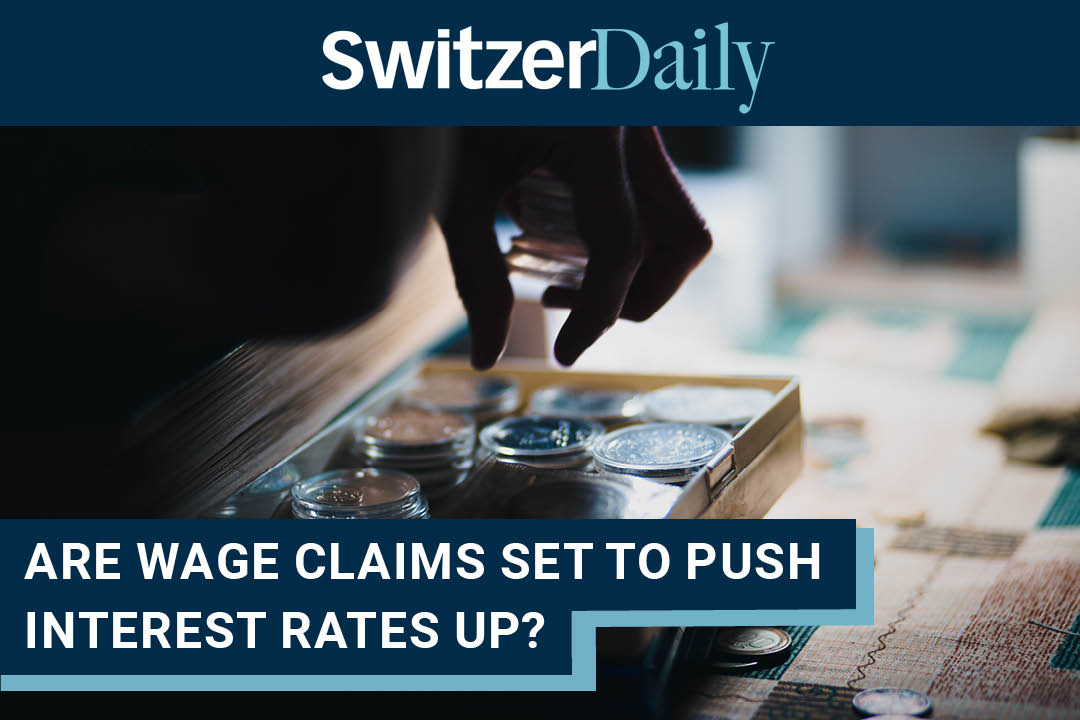

A lot of economics is seen as a zero-sum game — when someone wins, someone loses. And the fact that retail workers are angling for a 7% pay rise is a case in point.
If a retail worker gets the 7% hike in pay and lives in a home they own, they’d be winners from the wage rise. However, for those retail workers with a loan, who see that their pay rise adds to inflation and the RBA raises interest rates, could lose more in repayments than they gained in the after-tax pay hike.
Then if landlords raised rents because of higher inflation and higher interest rates, then the retail worker who rents gains in pay but loses with rents.
Of course, the whole community loses when retail workers get paid 7% and inflation remains around, say, 5%, or even at the current 7%.
The AFR talked to Professor Mark Wooden, who the Coalition put on the Fair Work Commission’s (FWC) panel for working out minimum pay decisions but lost the job when Labor took power.
He thinks the pay rise will be close to 7% and some job losses will result. and those who lose their job will losers as well, to offset the winners with more pay and no loan or rents to pay.
The Australian Retailers Association chief executive Paul Zahra sees this wage claim as bad for jobs. ‘‘Most of retail is in negative growth. All you’ve got growing currently is food retailing, and that’s because of inflation,’’ Mr Zahra told the AFR.
‘‘In a cafe with an owner-operator and a handful of staff on thin margins, at the end of the day, any wage increase is passed on – it goes straight through to the customer.’’
You can see how the wage-price spiral works. If the retail workers get a 7% pay rise, it could set off other claims, so this will be a real test for the Albanese Government.
Treasurer Chalmers has called out inflation as our greatest economic threat, so he shouldn’t want to see his own government stoking the fire for persistently high inflation.
On Wednesday we see the latest Wage Price Index and an increase of 0.9% is expected, which would take the annual increase to 3.6%, which would be a decade high rise. That said, it’s a reasonable number compared to 7%, and anyone with a mortgage that they’re finding hard to cover now, won’t want to see a wage explosion.
When the RBA surprisingly pumped the cash rate from 3.6% to 3.85% two weeks ago, it pointed to “…accelerating inflation in the labour-intensive services sector as one of the key reasons it unexpectedly lifted interest rates to 3.85 per cent earlier this month,” the AFR’s Cecile Lefort reminded us.
This could be the biggest minimum pay rise in decades, and it looks like the Albanese Government is right behind this 7% hike for the lowest paid in the country.
Clearly, any pay/cost rise is effectively reduced by productivity rising, which reduces costs, but recent readings haven’t indicated we’re going through a productivity boom.
Big pay rises will not only hurt mortgagees with big loans but also those who lose jobs. And it will be a double whammy for some who lose their jobs as their repayments go up!
I must admit I would’ve liked Dr Chalmers to be a voice of moderation with this issue, even if it was only window dressing and he knew he’d lose out to his colleagues in the party room.
Treasurers have to be scrooges and be willing to choose the big economic picture over the small economic picture of their supporters. This is why Labor attracts doubts over their ability to be strong on economic policy.
Think about it, Jim, if you don’t want the Albanese Government to be a oncer. If inflation persists at high levels and interest rates remain elevated, even Peter Dutton might look attractive as an alternative PM. And who knows, Josh Frydenberg could make a comeback!